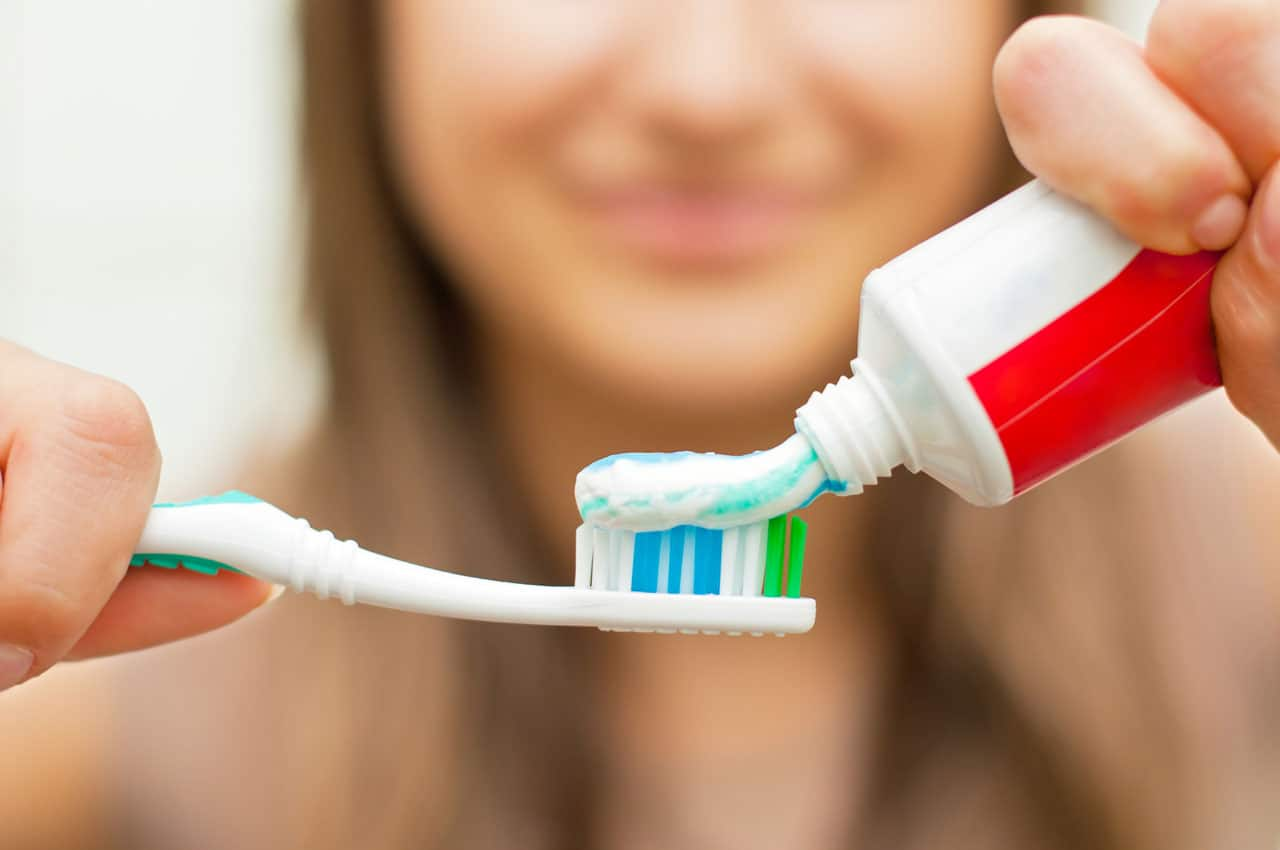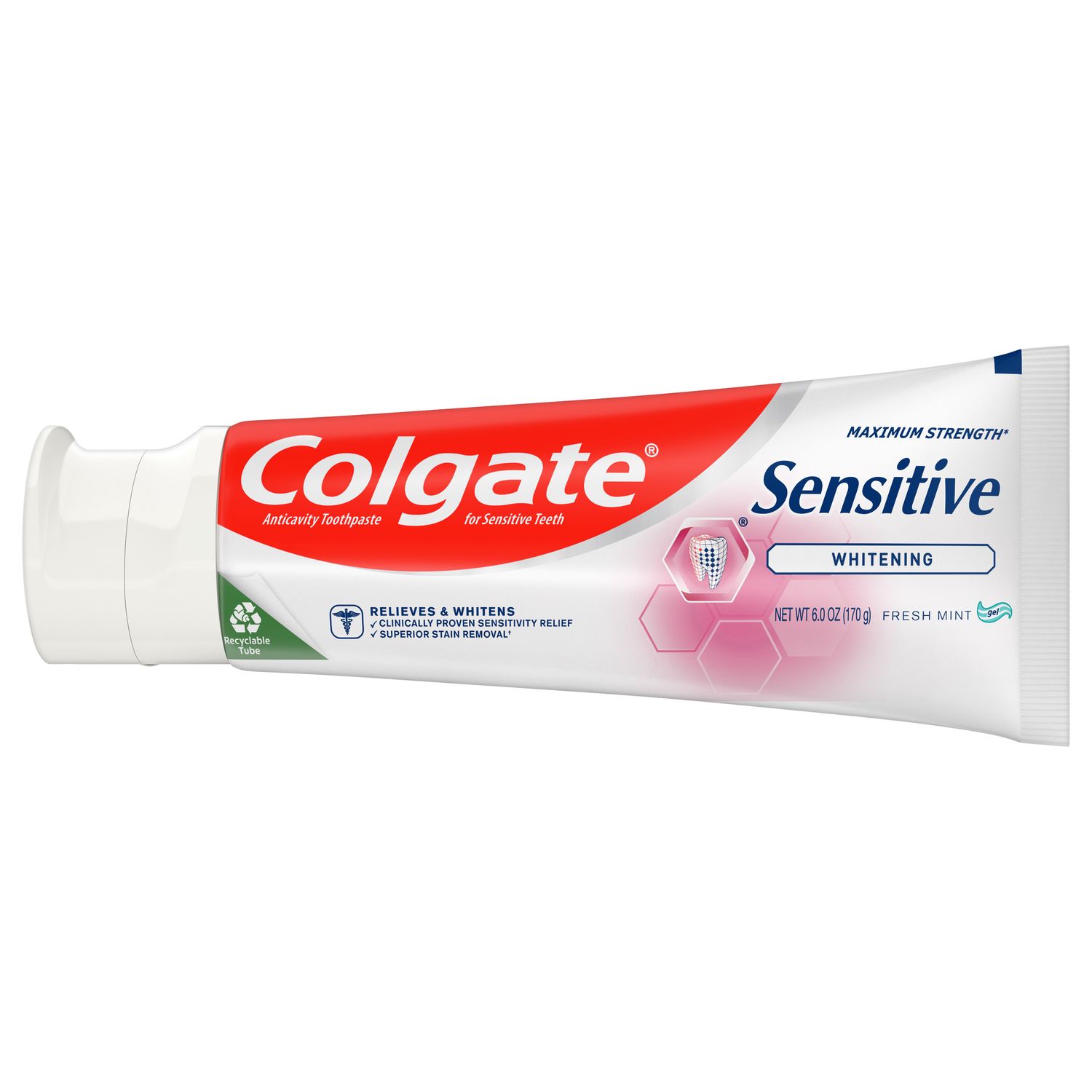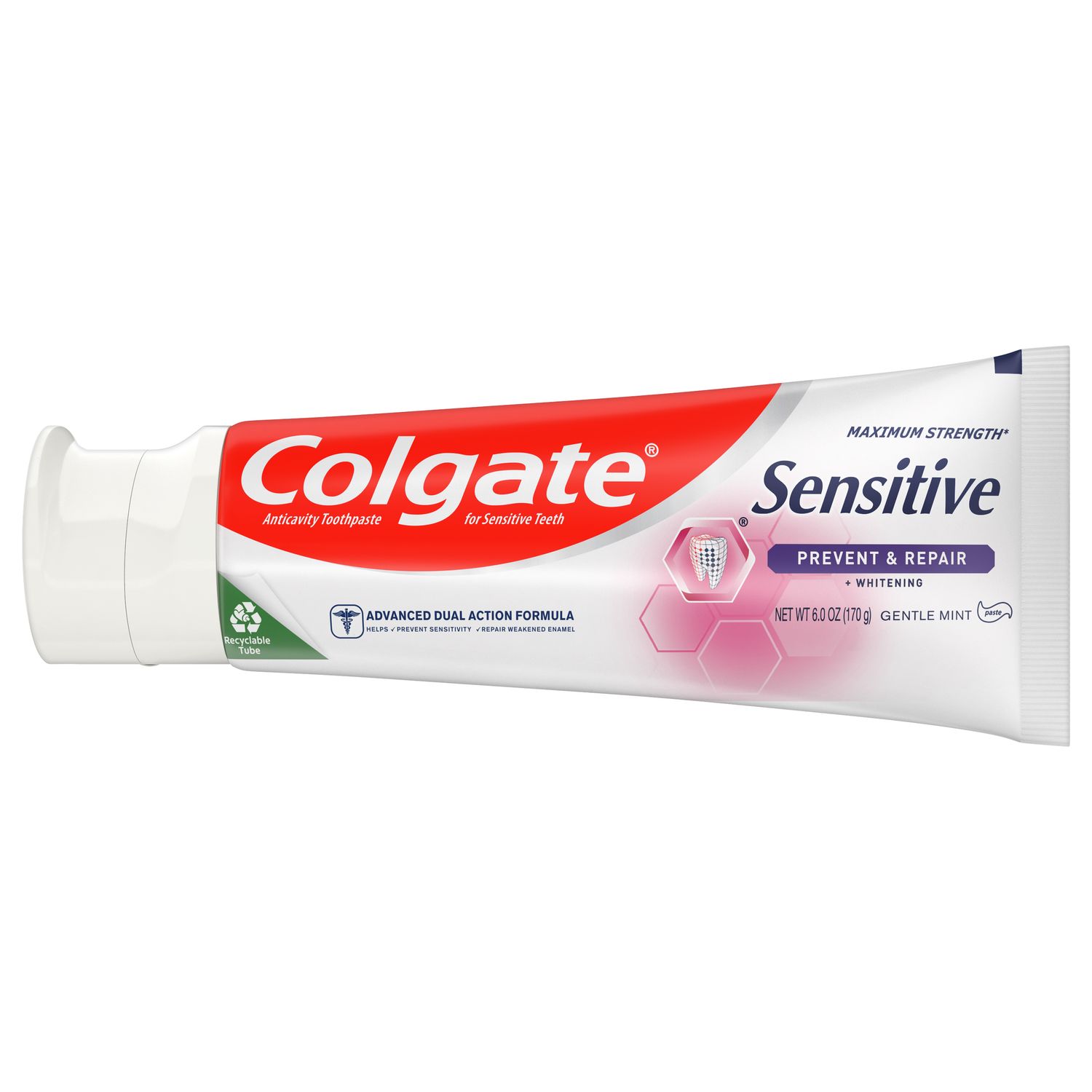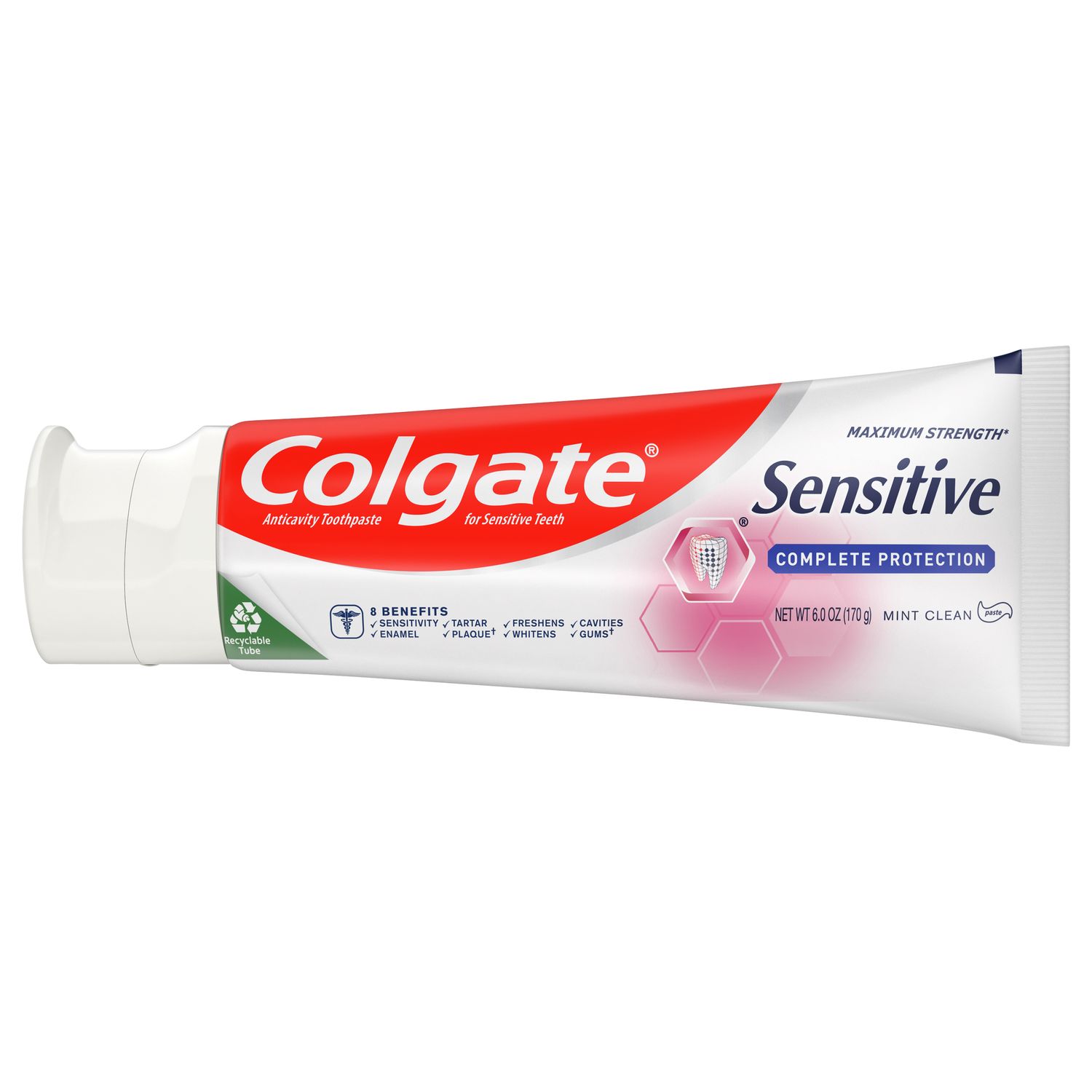What Causes Tooth Sensitivity?
The tops (crowns) of your teeth are protected by a strong outer layer called enamel. The roots that are normally underneath your gums don’t have enamel but are protected by cementum. Enamel and cementum both protect your teeth's dentin that help pass sensation to your nerves and then brain.
If a condition or damage weakens your enamel or exposes your teeth' roots, your dentin can experience sensitivity. According to the American Dental Association, this can cause hypersensitivity, leading to hot, cold, acidic, and sticky items triggering pain or discomfort.
Causes of sensitive teeth may include:
Gum recession
Gum disease (gingivitis or periodontitis)
Tooth decay or plaque buildup
Worn-down enamel
Damaged or fractured teeth
Damaged fillings
Aggressive brushing
Grinding your teeth
Use of tooth-whitening products or acidic mouthwash
Dental procedures (typically temporary and lasts between 4-6 weeks)
How to Treat Sensitive Teeth
It can be challenging to know how to treat or get rid of sensitive teeth. Fortunately, there are various options available to help alleviate your discomfort or address the underlying cause. Keep in mind that the appropriate treatment or solution to your tooth sensitivity will depend on its cause and your individual situation.
Treatments for sensitive teeth include:
Toothpaste for sensitivity. Products are available that help lessen the amount of discomfort triggered by hot, cold, or acidic items (note that they can take several applications before becoming effective).
Use a straw. This handy tool can help hot or cold beverages move past the sensitive areas of your teeth.
Fluoride varnish. Your dental professional may recommend applying fluoride varnish to your teeth to strengthen your enamel.
Dental restoration. Your dental professional may recommend a crown, inlay, onlay, or composite restoration after the decay is removed. This dental restoration may reduce tooth sensitivity once completed.
Gum graft. This procedure replaces the receded or missing gum tissue to protect your exposed root.
Root canal procedure. If an underlying infection is causing sensitivity, your dental professional may recommend removing infected tissue in the pulp of the tooth.
A proper oral care routine. It can be tempting to look for a magic solution, but the basics are the most effective. If you have tooth sensitivity, you don’t want it or the problems that created it to get any worse, so it’s a great idea to use this opportunity to power-up your oral health.
Helpful tip: It’s important to remember that lowering sensitivity is not the same as addressing its underlying causes. If you’re experiencing sensitivity or pain, it could be a sign of damage or a condition that requires professional intervention. We recommend scheduling an appointment with your dental professional for diagnosis and treatment.
How to Prevent Sensitive Teeth
Often, the best way to handle a symptom is to avoid it before it starts. If you’re worried about developing sensitive teeth or want to confront issues that could be causing sensitivity, proper diet and dental hygiene are the best tools at your disposal.
Steps to prevent tooth sensitivity include:
Brush gently using a soft-bristled toothbrush with a non-abrasive toothpaste for two minutes twice daily.
Schedule regular visits with your dental professional every 6 months for cleanings.
Use dental floss or an interdental cleaning device to clean between your teeth once a day.
Choose fluoridated mouthwash, toothpaste, or water (most tap water contains fluoride!).
Avoid or limit acidic foods and drinks in your diet.
Chew sugar-free gum or consume dairy products to stimulate saliva production that protects your enamel.
Check with your dental professional if you have sore jaws or believe you may grind your teeth for expert diagnosis and treatment recommendations.
Tooth sensitivity can be challenging, but you're not alone when looking for a solution and can rely on the professionals for diagnosis and treatment. You've made a healthy decision to inform yourself that sensitivity is caused by dentin exposed to hot, cold, or acidic foods and beverages. Now is a great time to avoid future difficulties and confront sensitivity by practicing proper dental hygiene and regular dental care.
How to Stop Sensitive Teeth Pain
To stop sensitive teeth pain immediately, you can try home remedies for toothaches. These include:
Tea bag compresses: Tannins in tea help fight infection, reducing bacteria that can lead to tooth decay and inflammation which can cause pain. Steep a tea bag (black, chamomile, peppermint) for 1-2 minutes then place it in the freezer. Put in on your sore tooth or gums. Chamomile also has antiseptic properties and peppermint has menthol which may soothe aching teeth.
Saltwater rinses: Salt has antiseptic properties and can reduce inflammation. To help stop sensitive teeth pain rinse your mouth with a warm saltwater solution for 30 seconds, then spit it out.
Vanilla extract: According to the National Library of Medicine, not only does it make baked goods taste delicious, but vanilla extract also contains pain-relieving and antiseptic properties. Dip a cotton ball in vanilla extract and apply it to the tooth and gums for a few minutes at a time.
Mouthwash for sensitive teeth: These help by numbing the dentin tubules that cause pain or by remineralizing teeth and enamel.
Tooth sensitivity can be challenging, but you're not alone when looking for a solution. You've made a healthy decision to learn about the causes of tooth sensitivity such as exposed dentin being irritated by hot, cold, or acidic foods and beverages. Knowing which foods to avoid and addressing causes of sensitivity such as enamel erosion through proper dental hygiene is the first step to addressing your sensitive teeth pain. By following some of these tips to help stop sensitive teeth pain and by visiting your dentist for diagnosis and treatment, you can find relief from your sensitive teeth!
This article is intended to promote understanding of and knowledge about general oral health topics. It is not intended to be a substitute for professional advice, diagnosis or treatment. Always seek the advice of your dentist or other qualified healthcare provider with any questions you may have regarding a medical condition or treatment.
ORAL HEALTH QUIZ
What's behind your smile?
Take our Oral Health assessment to get the most from your oral care routine
ORAL HEALTH QUIZ
What's behind your smile?
Take our Oral Health assessment to get the most from your oral care routine














